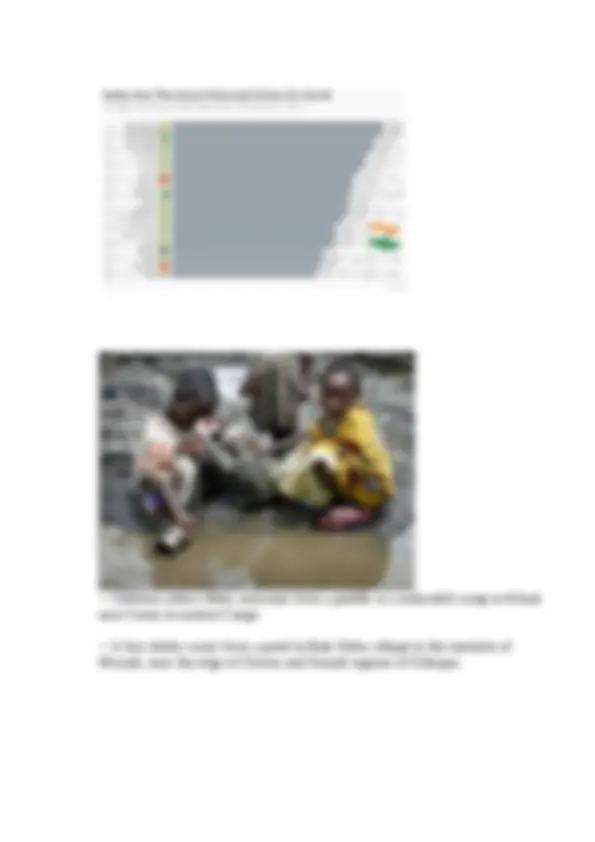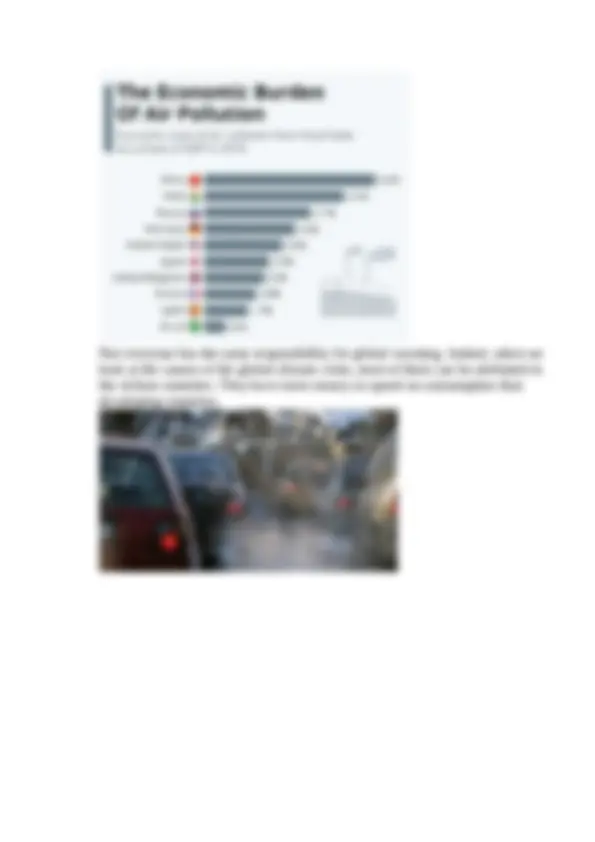





Study with the several resources on Docsity

Earn points by helping other students or get them with a premium plan


Prepare for your exams
Study with the several resources on Docsity

Earn points to download
Earn points by helping other students or get them with a premium plan
Community
Ask the community for help and clear up your study doubts
Discover the best universities in your country according to Docsity users
Free resources
Download our free guides on studying techniques, anxiety management strategies, and thesis advice from Docsity tutors
The disproportionate effects of global warming on developing countries, focusing on environmental, health, and economic aspects. It highlights the consequences of warming in hot, arid, or tropical zones, the link between pollution and various diseases, and the economic costs associated with poor air quality. The document emphasizes the disparity between rich and poor nations in terms of responsibility and impact, with developing countries suffering the most despite contributing less to global warming.
Typology: Schemes and Mind Maps
1 / 7

This page cannot be seen from the preview
Don't miss anything!




neurological diseases like Alzheimer’s and Parkinson’s disease; a variety of psychological conditions In Bangladesh, India, Nepal and Pakistan, air pollution cuts an average of five years off the lives of citizens. Air pollution negatively affects people throughout their life, beginning in their mother’s womb and stretching into old age. Studies show that poor air quality can increase the likelihood of contracting COVID- No one, rich or poor, can escape air pollution. But more than 90% of those deaths happen in low- and middle-income countries, mainly in Asia and Africa, followed by low- and middle-income countries of the eastern Mediterranean region, Europe and the Americas. It shows how poor countries are being hit the hardest. India has the maximum number of most polluted cities in the world. Further, in 2021, none of the cities in India met the prescribed World Health Organization (WHO) air quality standards of 5 micrograms per cubic meter
Not everyone has the same responsibility for global warming. Indeed, when we look at the causes of the global climate crisis, most of them can be attributed to the richest countries. They have more money to spend on consumption than developing countries.
As for the wealthiest, they often have the capital necessary to deal with the problems inherent in climate change. The cost of the lost lives and ill health caused is also a colossal economic burden: $5tn a year, according to a World Bank report. Pollution inequality between the world’s rich and poor is widening,